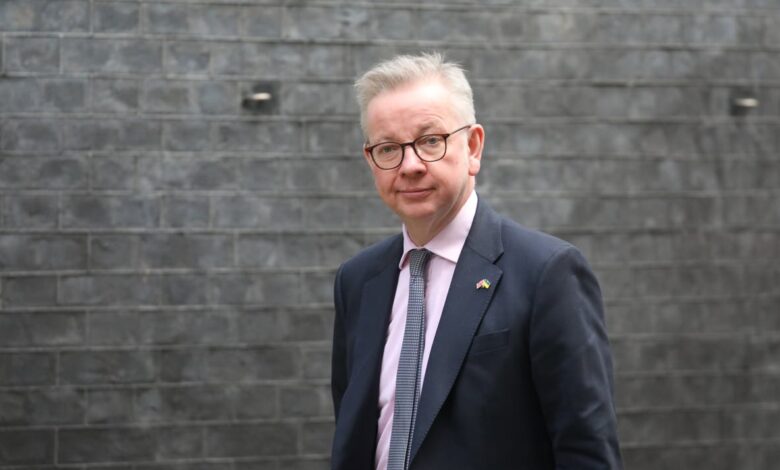Brexit: Anger over ‘shortfall’ in government funds to replace EU support for disadvantaged regions

A government fund designed to replace EU grants lost due to Brexit has been blasted as “catastrophic” amid claims that it will cut support for disadvantaged areas by more than 40 per cent over the coming three years.
The Conservative manifesto for the 2019 general election promised to at least match the money provided to less wealthy areas through EU structural support.
But details of the Shared Prosperity Fund released today by levelling up secretary Michael Gove show that it will hand out £2.6bn over three years, but will not reach the £1.5bn annual total provided by Brussels until 2024-5.
Mr Gove said that the fund will start at £400m this year and only gradually rise to the previous EU level because needy regions will still be receiving funds from Brussels until the end of 2024.
But the Northern Powerhouse Partnership – chaired by former Tory chancellor George Osborne – said that this was unfair, as the EU money related to projects which were already under way and would not have been deducted from funds for the next two years if the UK were still in the EU.
Welsh first minister Mark Drakeford said that the nation stands to lose out by £1bn over three years, while having less say over how the money is spent. He said: “This is not levelling up, it’s levelling down.”
And NPP director Henri Murison said the shortfall amounted to a 43 per cent cut over three years, while authorities will lose the long-term security provided by the seven-year allocations offered by the EU.
“We were promised that no nation would be worse off post Brexit but, when you take out the smoke and mirrors, the data doesn’t lie,” he said.
“These funds helped young people find work, supported small businesses and backed vital medical research – cutting it will have catastrophic consequences for our economy.”
Announcing how money from the fund will be shared out over the next three years, Mr Gove said it would “help to unleash the creativity and talent of communities that have for too long been overlooked and undervalued”.
“We have taken back control of our money from the EU and we are empowering those who know their communities best to deliver on their priorities,” he said.
But the NPP said that the post-Brexit fund was worth an average £873m annually over the next three years, compared with £1.5bn a year from the EU between 2014 and 2020, and was being delivered in a way which “encourages short termism”.
This would mean, for example, the Tees Valley receiving £13m less and Greater Manchester £26m less, allowing for inflation, they said.
“Today is not a recipe for success,” said the Partnership. “It’s a serious blow for levelling up.”
Mr Drakeford said: “Despite repeated promises, the UK government’s announcement today leaves Wales with less say over less money.
“We’ll lose over £1bn that could have been used to grow the economy and support our most disadvantaged communities. This is not levelling up, it’s levelling down.”
Labour’s shadow levelling up secretary Lisa Nandy said the announcement amounted to “another broken promise” from the government.
“We don’t have full figures as the government haven’t published them, but the direction of travel is obvious – and frustratingly familiar,” she said. “Big promises to ‘level up’ don’t mean much when you’re cutting money from our most disadvantaged communities.”
Meanwhile, the Institute for Fiscal Studies think tank said that government had missed an opportunity to get rid of “arbitrary” features in the EU scheme which created “cliff-edge” disparities in funding, with far higher levels of support going to Cornwall and west Wales than other areas which are only marginally wealthier, like South Yorkshire, Lincolnshire, or Durham.





